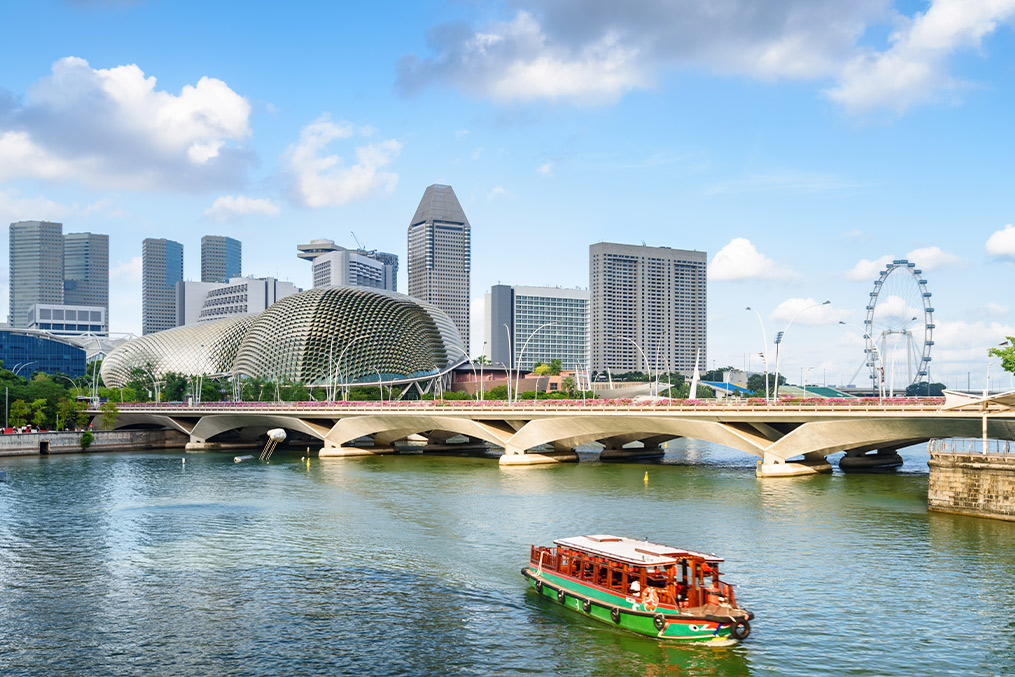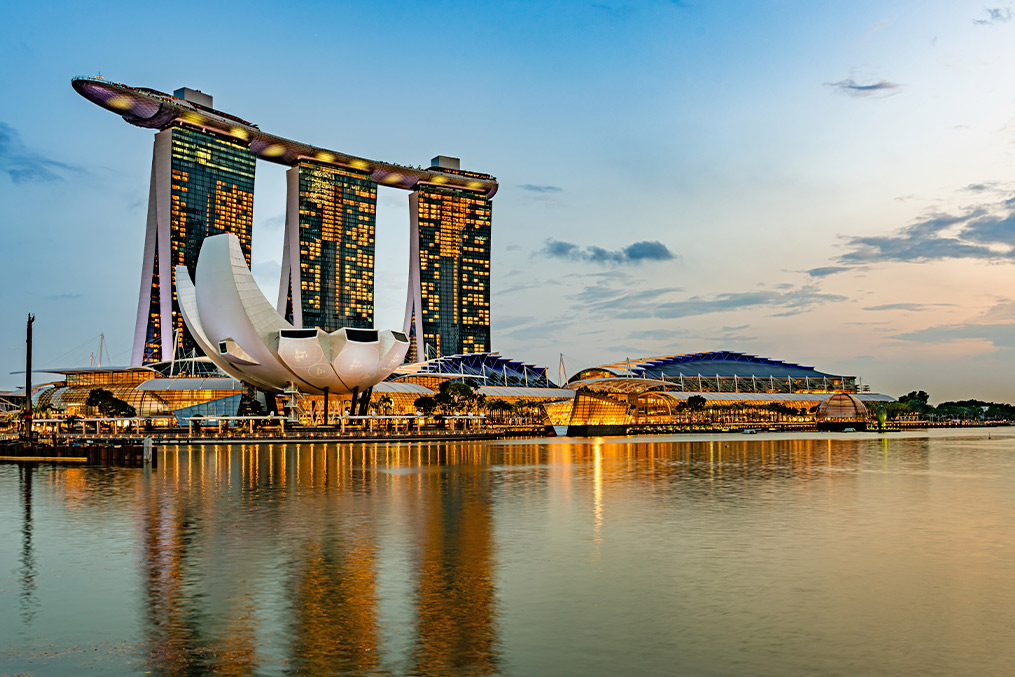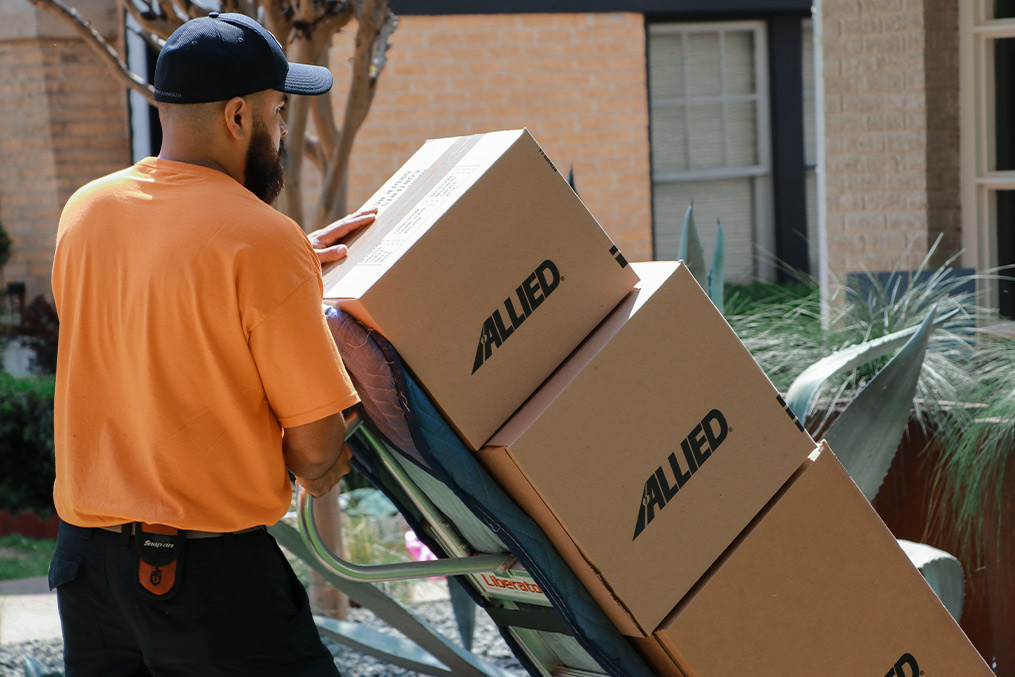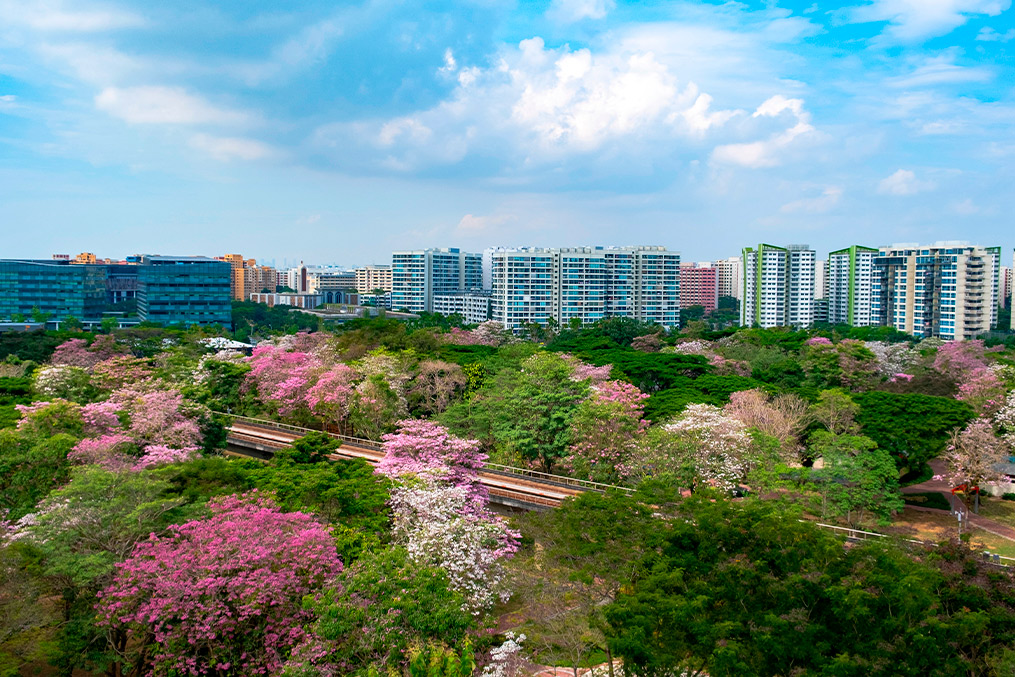Relocating from California to Singapore: Your Complete Guide
Mar 10, 2025

Relocating from sunny California to the vibrant city-state of Singapore is a bold and exciting move. Whether you’re drawn by career prospects, a change in lifestyle, or the allure of living in Asia’s hub of modernity and culture, this guide on relocating from California to Singapore will walk you through every step of the journey. From understanding legal requirements to navigating cultural shifts and settling into daily life, this California to Singapore expat guide has you covered.
Why Move from California to Singapore?
If you’re wondering why so many Californians are moving from California to Singapore, the reasons are compelling:
- Career advancement: Singapore is a global business hub, particularly for industries like finance, technology, and biotechnology. For professionals from California’s thriving tech and startup scene, Singapore offers exciting job prospects and a strong economy.
- Lower taxes: Singapore’s tax rates are significantly lower than California’s, allowing expats to retain more of their income while still benefiting from excellent infrastructure and public services.
- Strategic location: Singapore’s position in Southeast Asia makes it an excellent base for exploring the region. Weekend trips to destinations like Bali, Bangkok, and Kuala Lumpur are affordable and convenient.
- Safety and efficiency: Singapore consistently ranks among the safest cities globally, with low crime rates and a world-class public transport system—a refreshing change for Californians accustomed to long commutes and traffic congestion.
- High quality of life: From top-notch healthcare and international schools to a vibrant food scene and multicultural festivals, Singapore offers a unique blend of comfort, culture, and modernity.
Whether you’re an entrepreneur seeking new markets, a professional looking for international experience, or a family craving a safe and dynamic environment, Singapore delivers in ways that complement and even enhance the Californian lifestyle. Let’s dig deeper.
Culture and Lifestyle

- Cultural melting pot: Singapore’s multicultural society blends Chinese, Malay, Indian, and Western influences. This diversity is reflected in its holidays, cuisine, festivals, and daily life. You can celebrate Chinese New Year, Deepavali, Hari Raya, and Christmas all in one calendar year.
- Fast-paced urban life: In contrast to California’s more relaxed, outdoor-centric lifestyle, Singapore’s work culture emphasizes efficiency and punctuality. The fast-paced nature can feel overwhelming at first, especially for those used to the more flexible work styles common in Silicon Valley or SoCal.
- Dining scene: California’s farm-to-table movement is globally famous, but Singapore’s hawker culture is UNESCO-recognized. From Michelin-starred Street food to luxurious rooftop dining, food is a major part of social life. Western food is widely available, but local dishes like Hainanese chicken rice, laksa, and satay are must-tries.
- Housing realities: Californians used to single-family homes and yards will likely adjust to high-rise living. Most expats in Singapore rent apartments in condominiums with shared amenities like pools, gyms, and barbecue pits. Space comes at a premium, especially in popular central neighborhoods.
- Nature and environment: Singapore is densely populated, but its commitment to green space is impressive. The city boasts numerous parks, nature reserves, and eco-friendly developments. Californians accustomed to outdoor adventures can still find plenty to explore, from the Southern Ridges hiking trail to island getaways like Pulau Ubin.
- Public etiquette: Singapore’s society values orderliness—littering, chewing gum (in public), and jaywalking carry fines. This high regard for public cleanliness and safety stands in contrast to the more casual, sometimes chaotic atmosphere of California cities.
Economic Landscape
- Cost of living: Singapore ranks among the world’s most expensive cities, especially for housing and imported goods. While dining out at hawker centers is affordable, imported groceries, alcohol, and cars come with hefty price tags.
- Taxes: Singapore’s tax system can be a pleasant surprise for Californians accustomed to high state income tax. With progressive tax rates maxing out at 24% (compared to California’s combined federal and state rates), expats often find their take-home pay stretches further.
- Job market: Singapore’s economy thrives on finance, technology, logistics, and biotechnology. Californians with experience in tech startups, fintech, renewable energy, and healthcare innovation will find strong opportunities. Networking is key—joining professional associations and attending industry events helps with landing a role.
- Banking and finances: Setting up a bank account is relatively straightforward, but U.S. citizens should be aware of FATCA (Foreign Account Tax Compliance Act) requirements. Many banks offer expat-friendly packages with multi-currency accounts and international transfer options.
- Economics stability: Singapore’s stable government, pro-business policies, and strategic location in Asia make it an attractive base for international careers, particularly for entrepreneurs expanding into Southeast Asia.
Visa and Legal Requirements
California to Singapore relocation requires understanding and complying with Singapore’s immigration policies, which are known for being stringent but clearly structured. Obtaining the right visa for your purpose of stay—whether for work, study, family reunification, or business—is essential to ensure a smooth and legally compliant move.
Work Visas
Most Californians moving to Singapore for employment will need an Employment Pass (EP), which is designed for professionals, managers, and executives. Requirements include:
- A confirmed job offer from a Singapore-based employer
- A minimum monthly salary (typically SGD 5,000, though this varies by industry and experience level)
- Recognized educational qualifications (usually a degree from an accredited institution)
Other common work visas include:
- S Pass: For mid-level skilled workers, requiring a lower salary threshold but also subject to a quota system.
- EntrePass: For entrepreneurs planning to start and operate businesses in Singapore, with stringent criteria on business viability and innovation.
Family Visas
If relocating with family, you may apply for dependent visas such as:
- Dependant’s Pass: For legally married spouses and children under 21 years old.
- Long-Term Visit Pass (LTVP): For common-law spouses, step-children, parents, or other eligible family members.
Customs and Import Considerations
- Household goods: Prepare a detailed inventory of all items being shipped. Some electronics, medicines, and food products may be restricted.
- High-value items: Declare expensive goods such as jewelry, artwork, or collectibles
- Vehicle Import: Importing personal vehicles is rare due to extremely high taxes, registration fees, and environmental levies. Most expats sell their cars before moving.
- Pets: If bringing pets, they must meet Singapore’s strict import requirements—including health certificates, vaccinations, and possibly quarantine (lasting up to 30 days for certain breeds).
Moving Logistics: From California to Singapore

Relocating internationally requires careful planning, especially when moving from California to Singapore—a journey of nearly 8,500 miles across the Pacific. Understanding the logistics involved will help you prepare for a smooth transition.
Choosing Movers
- International expertise: Choose a San Diego international moving company experienced in handling long-haul moves from California to Southeast Asia. Companies like Atlas Allied specialize in expat relocations will understand customs requirements and can provide valuable advice.
- Full-service options: Look for international movers offering door-to-door services, including professional packing, shipping, customs clearance, and delivery to your new residence in Singapore.
- Insurance: Always choose a mover over a broker. Ensure your mover offers comprehensive international moving insurance to protect valuable belongings in transit.
Key Documents
Prepare a comprehensive relocation folder that includes:
- Passport copies for all family members
- Visa/IPA letter
- Detailed packing list and inventory
- Proof of residence in Singapore (rental agreement or employer-provided housing confirmation)
- Insurance documents
- Medical records (especially for children and pets)
Customs Considerations
- Singapore has strict import regulations. Items like alcohol, tobacco, medications, and electronics may require special declarations or permits.
- Prohibited items include chewing gum, e-cigarettes, pirated media, and certain types of wildlife products.
- High-value items such as jewelry, artwork, and collectibles should be appraised and declared.
Pet Relocation
If bringing pets, you’ll need to navigate stringent requirements:
- Microchipping is mandatory.
- Pets must be vaccinated according to Singapore’s guidelines, and health certificates must be provided.
- Depending on the country of origin and the pet’s vaccination history, quarantine periods (ranging up to 30 days) may apply.
- Consider hiring a pet relocation specialist to manage paperwork and ensure your furry friend arrives safely.
Special Tips for Californians

- Downsize thoughtfully: Singapore apartments are generally smaller than Californian homes, so it’s wise to declutter before packing.
- Electronics compatibility: Singapore uses 230V voltage and Type G power plugs, so check if your appliances will work without adapters.
- Climate considerations: Singapore’s tropical climate might mean leaving behind bulky winter gear.
By working with trusted professionals and thoroughly understanding the logistics process, you can minimize stress and focus on settling into your exciting new life in Singapore.
Cost of Living Comparison
| Expense | California (San Francisco) (estimated) | Singapore (estimated) |
| Rent (2-bed apt) | $4,00/month | SGD 3,000-7,000/month |
| Utilities | $234/month | SGD 150-200/month |
| Meal at Restaurant | $25/person | SGD 15-30/person |
| International School Fees | $39,180/year | SGD 28,392/year |
Housing: Finding Your New Home
Finding the right home is one of the most important parts of settling into life in Singapore, especially for expats coming from California’s sprawling suburbs or coastal communities. Housing in Singapore is markedly different from what most Californians are accustomed to, with high-rise living dominating the residential landscape.
Popular Expat Areas
Singapore’s neighborhoods vary greatly in atmosphere, amenities, and price points. Here are some popular options among Californian expats in Singapore:
- Holland Village: Known for its lively expat-friendly vibe, Holland Village offers an array of restaurants, cafes, and boutique shops, making it ideal for both families and young professionals seeking a social scene.
- Orchard Road: Singapore’s most iconic shopping street is also home to luxury condominiums with top-notch amenities. It’s centrally located, but comes at a premium price.
- East Coast: Known for its relaxed, family-friendly atmosphere, East Coast offers a mix of spacious condos and landed houses. It also provides proximity to the beach and East Coast Park, perfect for outdoor-loving Californians.
- Sentosa: If you’re looking for resort-style living, Sentosa Island offers upscale villas and apartments right by the sea—ideal for those seeking luxury and tranquility.
- Tanjong Pagar: Close to the Central Business District (CBD), Tanjong Pagar is great for professionals who want a short commute while still enjoying vibrant nightlife, restaurants, and heritage shophouses.
Types of Housing
- Condominiums: Most expats opt for condos, which offer modern apartments with shared facilities like pools, gyms, BBQ pits, and playgrounds. Many are located in prime expat neighborhoods and offer varying sizes, from compact studios to large family units.
- Landed Houses: While rare and extremely expensive, landed houses (single-family homes) do exist in Singapore, especially in areas like Bukit Timah. These properties offer more space, gardens, and privacy but are usually far from the city center.
- HDB Flats: Some expats also explore renting public housing flats managed by the Housing Development Board (HDB). These are more affordable, but availability for non-citizens is limited.
Renting Process
- Lease length: Most leases run for 1 to 2 years.
- Deposits: Expect to pay 1-2 months’ rent upfront as a security deposit.
- Agent fees: If you hire a real estate agent (recommended for newcomers), fees are typically covered by the landlord for leases above SGD 3,500 per month.
- Negotiation: Expats often negotiate for perks like partial furnishing, air conditioning maintenance, and even flexible termination clauses.
Taking the time to thoroughly explore your options and understand the housing market will make your transition smoother and help you find a home that truly suits your lifestyle and budget.
Local Resources for Californians in Singapore
Government Agencies
· Ministry of Manpower (MOM) – Work visas
· Immigration and Checkpoints Authority (ICA) – Entry permits and residency
Expat Communities
· American Association of Singapore
Cultural and Professional Networks
· American Chamber of Commerce Singapore
FAQs about moving to Singapore

1. How long does it take to move from California to Singapore?
Typically, it takes 1-3 months from visa approval to full relocation from California to Singapore.
2. Can I bring my car to Singapore?
Yes, you can choose to carry your car to Singapore, but it is not recommended due to high import duties and registration costs.
3. What healthcare options do expats in Singapore have?
Expats in Singapore can use private health insurance. Many employers offer coverage.
4. Is Singapore pet-friendly?
Yes, Singapore is pet-friendly, but pets must meet stringent import and quarantine rules.
5. How do I find a job before moving to Singapore?
To find a job in Singapore, use LinkedIn, recruitment agencies, and California alumni networks.
6. Can I use my California driver’s license in Singapore?
Yes, you can use a California driver’s license in Singapore for the first year. After that, you’ll need a Singapore license.
7. How long is a flight from California to Singapore?
The flight duration from California to Singapore varies depending on your departure city and whether you choose a direct or connecting flight. On average:
- Los Angeles (LAX) to Singapore (SIN): Approximately 17 hours direct.
- San Francisco (SFO) to Singapore (SIN): Approximately 16.5 to 17.5 hours direct.
- With layovers (in Tokyo, Seoul, or Hong Kong), total travel time can extend to 20-24 hours.
Singapore Airlines and United Airlines both offer non-stop options, making it easier than ever for Californians to reach Singapore efficiently.
Relocate from California to Singapore with Atlas Allied
Planning your relocation from California to Singapore? Let Atlas Allied make your international move smooth and stress-free. With decades of experience in global relocations, we specialize in helping Californians transition seamlessly to life in Singapore. From expert packing and secure shipping to customs clearance and settling-in support, Atlas Allied is your trusted partner every step of the way.
Contact Atlas Allied today for a free personalized moving quote.